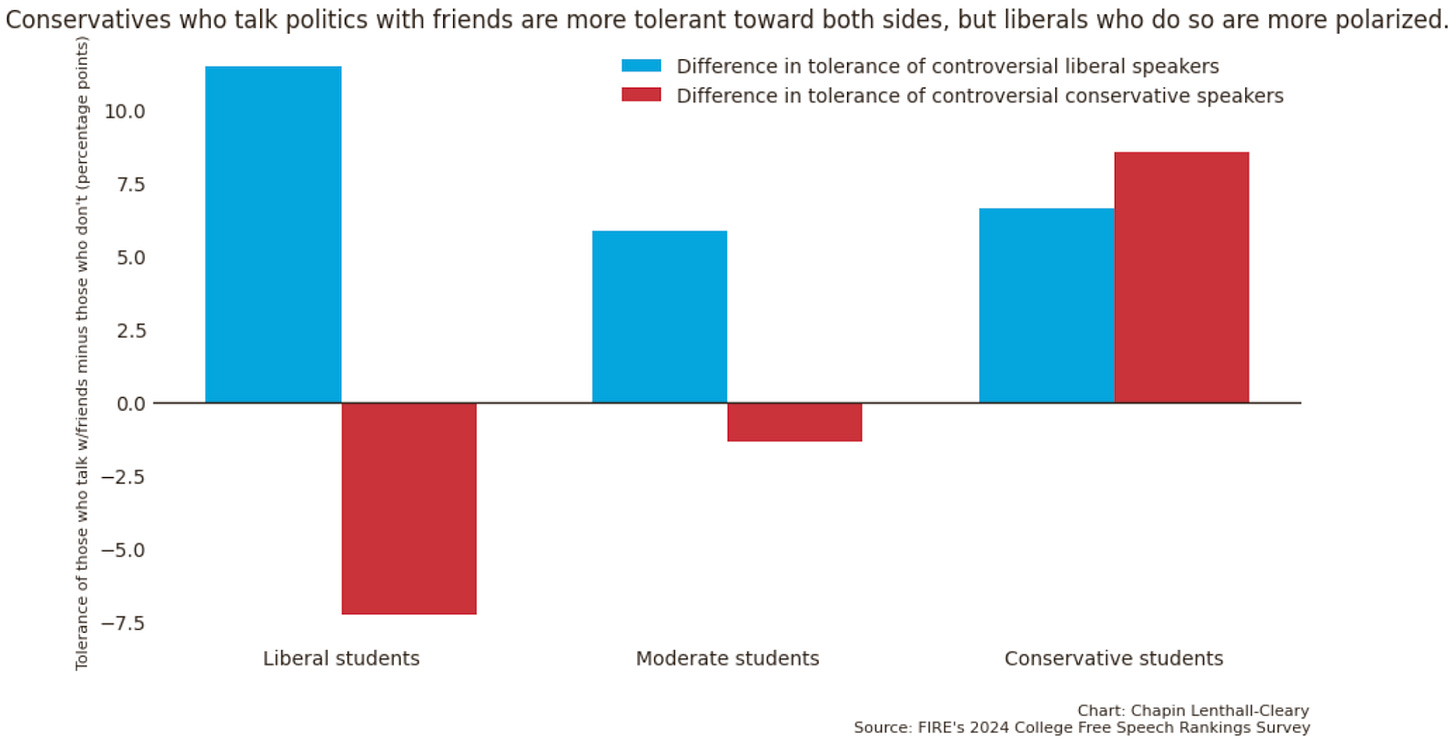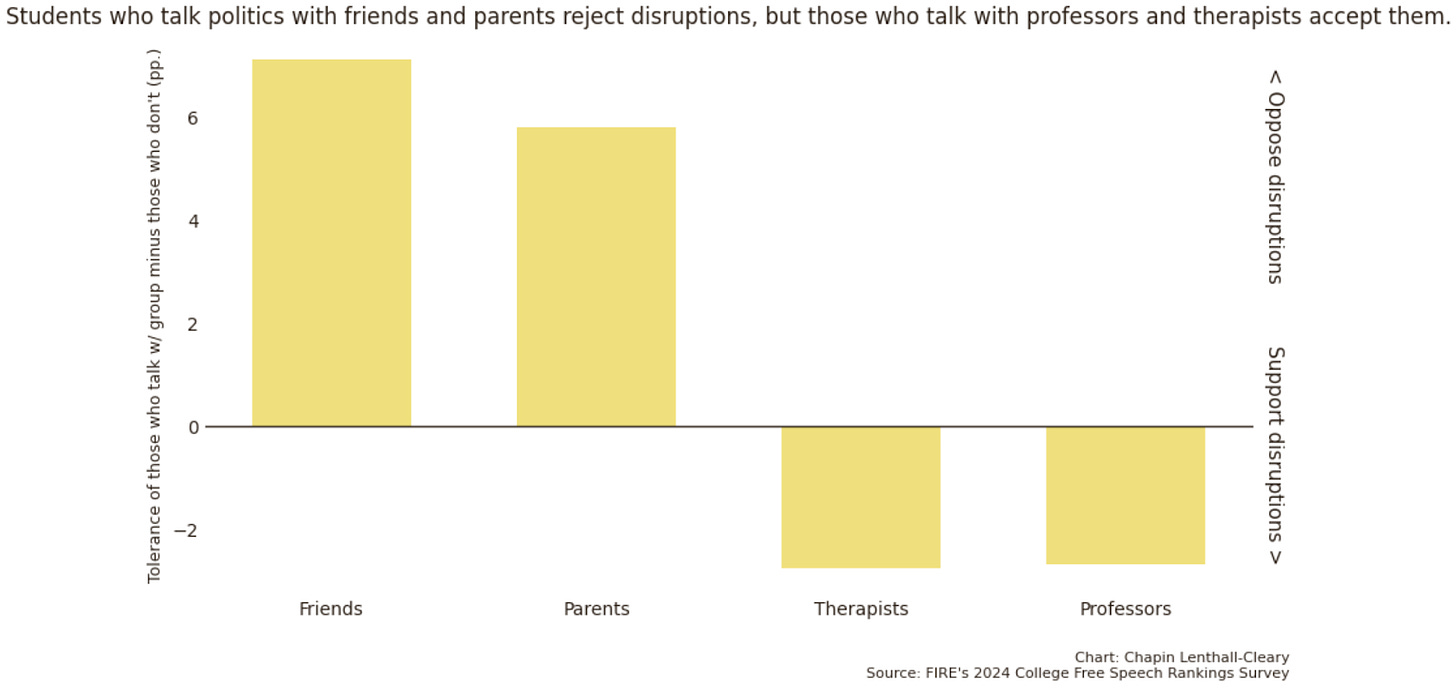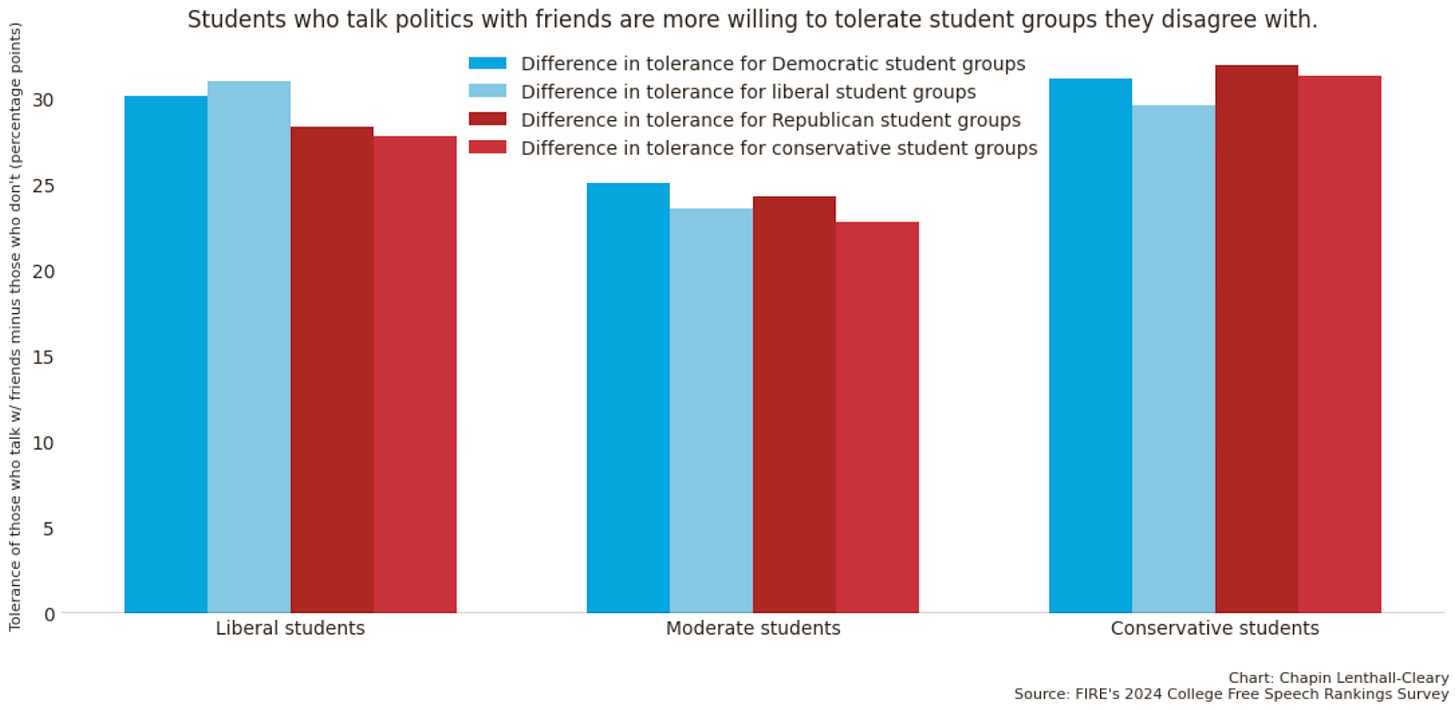How campus conversations shape political tolerance
When it comes to student opinion, peers make the biggest impact
If we want a campus culture of tolerance and free speech, it turns out who students talk to about politics matters — and friends matter most of all.
But here’s the catch. Conservatives who talk politics with friends are more tolerant toward both sides, while liberals who do so are more tolerant only of their own side, and less tolerant of the other.
In FIRE’s 2024 College Free Speech Rankings, students selected up to 12 people they talked politics with — from friends and family to faculty and staff. We asked, did they support controversial liberal and conservative speakers being allowed on campus? Did they oppose protest tactics such as shouting down or blocking speakers? Were they willing to recognize student groups even if they disagreed with their views?
The difference between conservative and liberals in talking with friends may be because conservatives, as a minority on most campuses, regularly face opposing views, which ends up boosting tolerance more over time. Liberals, meanwhile, can more easily stay in their bubbles, and the data seems to suggest that’s what they’re doing.
Professors had a modest but steady effect. Students who talked politics with them were 3-4% more tolerant of both liberal and conservative speakers. But these same students, as well as those who talked to therapists, were also more likely to support disruptive tactics to silence controversial speakers.
But those who talked to friends and parents were less likely to support illiberal tactics — a finding that held even after accounting for ideology, demographics, and mental health (p < .001). One encouraging pattern emerged when we looked at tolerance toward student groups. Students who talked politics with friends were more willing to tolerate political groups, even if they disagreed with their views.
Because this was not a randomized experiment, we cannot say for certain that these conversations actually caused tolerance to go up or down. But many initiatives use structured discussions as a form of intervention — including FIRE’s Let’s Talk programming. On campuses nationwide, people are trying to get students to talk, especially across political divides — and past research shows political conversations can increase tolerance.
These efforts are promising, but we must be sober about their limits. Not all discussions are created equal, and they cannot solve all our problems. But we can identify fertile areas, such as tolerance toward groups, and build on them.
Errors and residuals
About 80% of students talk politics with friends, 60% with parents, 20% with grandparents and extended family, 15% with professors and therapists, and less than 10% talk politics with administrators, advisors, coaches, or teammates.








